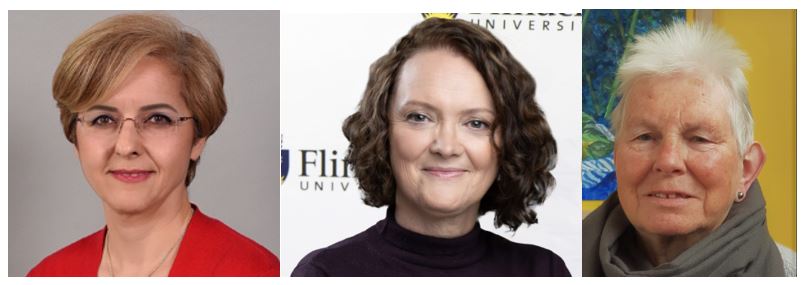
Aged care workers, nurses and carers in the community will receive more critical support when delivering end-of-life palliative care services thanks to two new Flinders University-led research projects, supported by South Australian Government grant funding.
These projects highlight a timely and renewed focus on improving critical resources and making services more accessible for professional staff and carers looking after end-of-life patients.
Research Fellow Dr Sara Javanparast, from Flinders University’s Research Centre for Palliative Care, Death and Dying (RePaDD), is investigating the experience of palliative patient unpaid carers accessing support services that assist them in their caregiving role, while helping them to maintain their own health and wellbeing.
The study aligns with the National Palliative Care Strategy 2018 and South Australia’s Palliative Care Strategic Framework 2022-27 priorities in relation to carers’ needs and support.
The project, awarded $74,165 by the Department for Health and Wellbeing, will partner with Carers SA and aims to conduct, 25-30 individual interviews with end-of-life and palliative patient carers in SA and investigate their knowledge and experience of current services.

“We’ll facilitate four focus groups to present key themes that have emerged from the interviews and discuss opportunities, gaps and ways that current services can be more responsive to the needs of those caring for palliative patients,” says Dr Javanparast.
“Using the death literacy questionnaire, we’ll measure the death literacy of study participants. This will enable us to make a comparison with the Australian national average and to identify areas of strength and gaps for future planning and action.”
Dr Deidre Morgan, Senior Palliative Care Lecturer at Flinders University, has received $75,000 in funding to develop resources which aim to improve provision of intimate hygiene in residential aged care facilities (RAC).
“How care with intimate hygiene is provided to those approaching the end of life is crucial in conserving or compromising dignity. The Royal Commission into Aged Care, Quality and Safety identified care that compromised dignity of those in RAC facilities, the majority of whom have non-malignant disease, as an area for urgent attention,” says Dr Morgan.
“We will explore resident and worker perspectives about how we can best conserve dignity for those receiving care with intimate hygiene. We will use this knowledge to develop video training resources for staff.
“The RAC workforce receives minimal training in care provision, particularly in effective communication which underpins all clinical care. Targeted skills training can improve health worker communication in a range of care settings, including end-of-life care.”
A third project will be led by Dr Gwyn Jolley, who is Deputy Chair and Secretary of Healthy Cities Onkaparinga, a not-for-profit organisation, in collaboration with the Southern Vales Compassionate Communities (SVCC). Dr Jolley and Kristina Walsh, who is Chair of the SVCC, are both members of RePaDD at Flinders University.
The $52,640 grant was awarded to develop Onkaparinga Compassionate Communities – a project that aims to build support communities for those at the end-of-life within the City of Onkaparinga, to help them feel more connected, aware and equipped to receive care and support.
“Compassionate Communities can improve quality of life and wellbeing, reduce stress and isolation, increase death literacy, extend knowledge and understanding of palliative care, embed palliative care into all care settings and increase access to services with a person-centred approach within our communities,” says Dr Jolley.
Flinders University Professor Jennifer Tieman, Director of RePaDD, welcomed the new funding commitment from the SA Government.
“Dying occurs across the life course, across the community and across our health and social systems. It is a universal human experience,” says Professor Tieman. “RePaDD researchers are leading the way in developing innovative solutions and advancing knowledge and evidence in palliative care to improve society’s experience of death and dying.”

